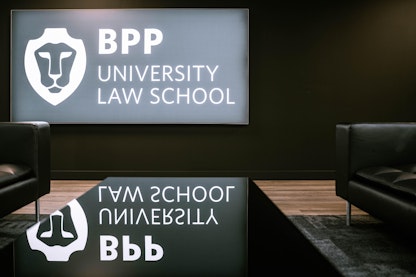The five most common questions about the SQE

BPP covers five common questions about the SQE, from SQE preparation courses, SQE exams, to QWE. Find out everything you need to know!
Since the implementation of the Solicitors Qualifying Examination (SQE), we’ve been running a series of webinars and outreach projects to help candidates understand this new qualification route.
In this blog, we’re taking a look at the six most common questions we’ve been asked about the SQE.
Is the SQE harder than the LPC (Legal Practice Course)?
Yes. There is no doubt that the SQE is more challenging to pass.
The SQE exams are a very different type of assessment than the Legal Practice Course (LPC). Whereas the LPC tests students at the level of a day one trainee solicitor, the standard of the SQE is that of a day one qualified solicitor.
The pass rates for the SQE1 exams, for example, have been just above 50% since it was introduced, which is much lower than most LPC pass rates.
This is partly because in the SQE1 exams you will be presented with multiple-choice questions in which each answer will be plausible. The questions are marked on a single best-answer basis, requiring a much broader depth of legal knowledge than the LPC.
Do I need to do an SQE preparation course to pass the SQE exams?
An SQE preparation course is essential for passing the SQE exams. Preparing for the SQE is not as simple as refreshing your knowledge from your undergraduate law degree or law conversion course. Not only are law and legal practice continually changing, but half of the SQE syllabus is made up of practice-based subjects that you may not be familiar with.
Although there is no requirement under the SQE route to take a preparation course, the high standard required to pass the exams means that an SQE preparation course that supports your learning needs will maximise your prospects of passing the SQE first time.
Our SQE preparation courses combine interactive classroom teaching (whether in-person or online), with a dedicated learning platform driven by AI. You will also have plenty of opportunities to practise the multiple-choice questions for SQE1 and the skills assessed in the SQE2 exams.
Does it matter what SQE preparation course I take?
Picking the right SQE preparation course matters. While your main aim will be to pass the SQE exams, there are a wide range of courses on the market, and some will prepare you for the SQE and your career better than others.
Law firms will be looking for candidates who have not only passed the SQE, but have a well-rounded combination of legal skills, knowledge, and experience to succeed in their career.
A master’s programme, like the LLM SQE1&2, balances this career development with SQE preparation.
This course has three main benefits:
More time and materials to prepare for the SQE assessments
Postgraduate master’s funding
Essentials for Practice module including additional specialist learning valued by law firms
What’s the difference between Qualifying Work Experience (QWE) and an LPC training contract?
The key difference between the practical on-the-job training of QWE and a traditional LPC training contract is that QWE is much more accessible.
A training contract will generally take place at a law firm or legal employer and will be completed after finishing the LPC. They take two years to complete, during which you are supervised by dedicated professionals such as a training partner or a graduate recruitment team.
SQE candidates, however, have flexibility in how they choose to complete QWE. You can complete your two years of QWE either before, during, or after you attempt the SQE exams. Your QWE can be completed at a single employer, much like a traditional LPC training contract, or at up to four different employers.
Your QWE will need to be tracked with a Solicitor’s Regulation Authority (SRA) training template and signed off by a solicitor.
Do non-law graduates need a law conversion course before attempting the SQE?
Yes. It is unlikely that any candidate with a non-law background would pass the SQE, without completing a law conversion course.
While the SRA has removed the requirement for a law degree or law conversion course, the SQE pass rates show that even those with 2:1 and first-class law degrees are finding the SQE exams challenging.
Without a law conversion course, non-law graduates would also be at a disadvantage in their careers. Law firms have made it clear that they would expect anyone coming through the SQE route to have had some form of formal legal training.
Ready to start your SQE journey with BPP?


